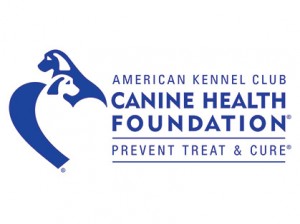New High Impact Publications from AKC Canine Health Foundation-Funded Research
The AKC Canine Health Foundation (CHF), a non-profit organization dedicated to advancing the health of all dogs and their owners through sound scientific research and dissemination of health information, reports that two separate CHF-funded research teams have just published their important findings for canine health in high-impact, open access scientific journals. Years of hard work and financial investment from CHF, our donors and researchers have produced information on adverse anesthetic reactions and canine cancer and vector-borne disease that will positively impact veterinary care now and in the future.
Greyhounds and other sighthounds are known to recover more slowly compared to other breeds following anesthesia using drugs such as thiopental and propofol. Researchers at Washington State University have now found a genetic mutation responsible for this altered drug metabolism. The mutation was also found in several breeds other than Greyhounds, indicating that the use of adjusted anesthetic protocols may be warranted in a larger percentage of the dog population than originally thought. They now hope to create a point of care test for this genetic mutation that will allow veterinarians to individually tailor the use of anesthesia and other medications to best suit each patient.
https://news.wsu.edu/2020/01/13/wsu-study-aims-prevent-adverse-drug-reactions-dogs/
Researchers at North Carolina State University have been exploring the possibility that intracellular infection plays a role in canine hemangiosarcoma, a deadly cancer of the cells that line blood vessels. They found that 73% of dogs with confirmed hemangiosarcoma had Bartonella DNA (intracellular bacteria spread by vectors such as fleas and ticks) in canine hemangiosarcoma tumor tissue and non-tumor tissues. Additional research is needed to confirm whether there is a mechanism through which Bartonella contributes to tumor development and to develop preventive strategies against Bartonella infection.
https://news.ncsu.edu/2020/01/bartonella-in-tumors-from-dogs/
Short URL: https://caninechronicle.com/?p=177506
Comments are closed












